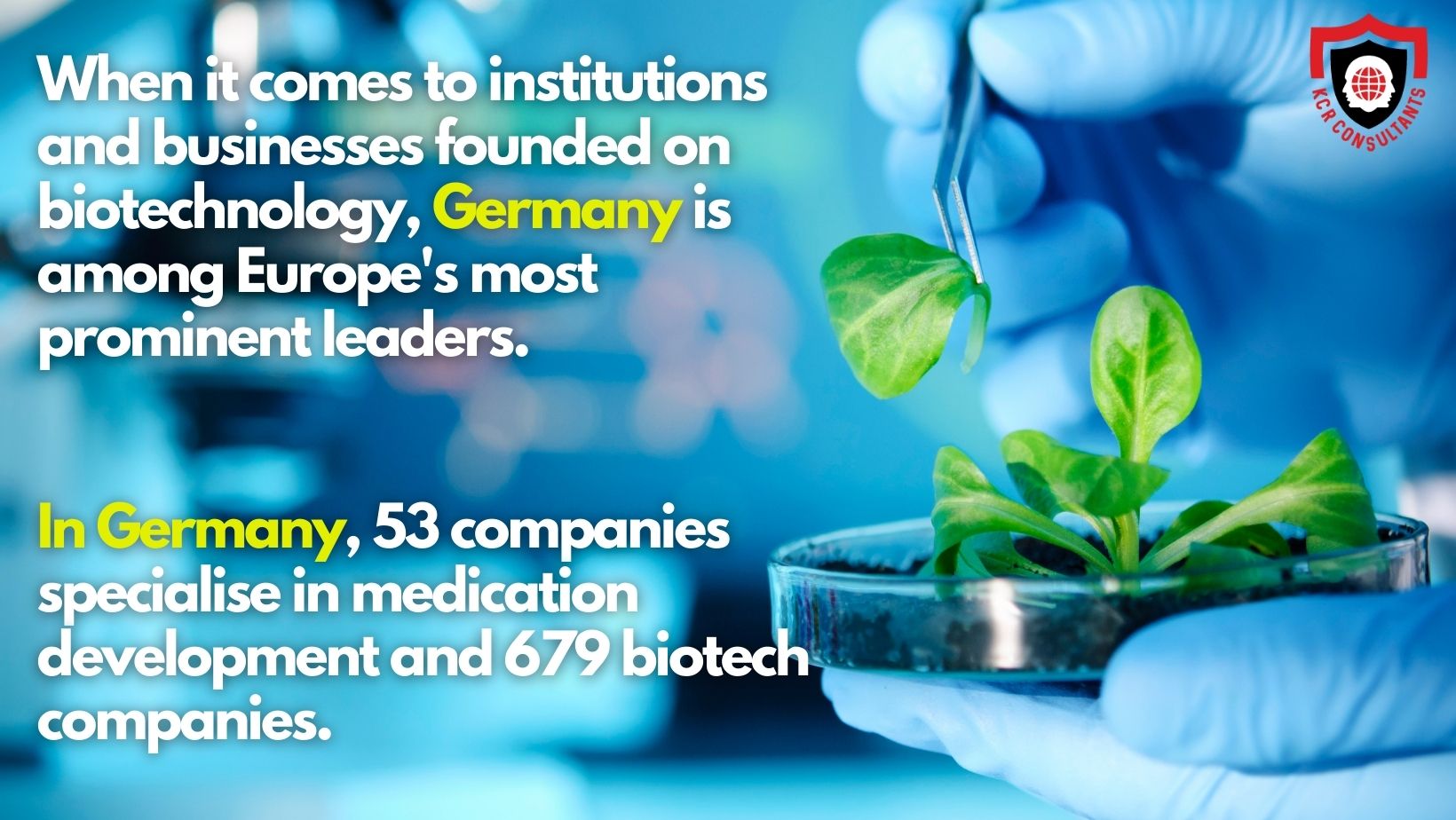Introduction to Master’s in Biotechnology in Germany
The key technologies of the twenty-first century are contemporary biotechnology and its transdisciplinary fields.
A post-specialised bachelor’s training in cell biology, microbiology, bioanalytics, and laboratory analytics is possible through the research-focused international master’s degree programme in biotechnology.
Are there any tuition fees for a Master’s in Biotechnology in Germany?
If you choose the master’s course in a German public university, you don’t have to pay any tuition fees (Free education in Germany).
If the course is from a private German university, you need to pay a certain amount as tuition fees.
We suggest attending a German public university because they don’t charge tuition fees.
Can I study Master’s in Biotechnology in Germany in English?
The master’s in biotechnology in Germany programme (Masters in Germany) has an English-taught and a German-medium course (also Bi-lingual, i.e., both German and English) which can start in the winter or summer semesters.
Application deadline for Master’s in Biotechnology in Germany
If you choose a summer semester, the deadline is usually in January.
If the winter semester, the deadline is between April and July.
You need not worry about which intake to go for as the application process will take months, so if you start the process early, you can choose your intake accordingly.
You can use that time to learn German and familiarise yourself with the German language.
You can tell us if you want to start learning the German language.
Do I need to learn German if I go for a Biotechnology Master’s in Germany in English?
We recommend learning German if you study in Germany, as Germany is a widely prevalent German-speaking country.
Outside the university, you can tour and visit historical places if your German is good.
You can talk openly to the German natives and learn many interesting things about Germany.
Knowing German will give you the confidence to progress in that country.
What are the requirements to study Master’s Biotechnology in Germany?
- You require an equivalent bachelor’s degree (like a bachelor’s in biochemical engineering, industrial biotechnology, chemical engineering, bioprocess engineering, food engineering, bioengineering, environmental biotechnology, etc.,).
- You must have good marks for your bachelor’s degree.
- You need an English language proficiency certificate to enrol in an English-taught master’s programme.
- If the programme you chose is a German medium course, you must produce a German proficiency certificate. It is not compulsory as you can start learning the German language after reaching Germany.
- You must submit all the certificates of your bachelor’s degree (degree certificate, all semester mark sheet, and consolidated mark sheet).
- Your updated Curriculum Vitae (CV).
- Your passport.
What will I study in the universities in Germany for a Master’s in Biotechnology?
Your course structure includes tissue engineering, microbial metabolism, nanobiotechnology, genetic engineering, laboratory diagnostics methods, immunology, synthetic microbiology, enzyme technology, eukaryotic microorganisms, and more.
Am I eligible for a stipend during my Master’s in Biotechnology in Germany?
You will not get a stipend if you go for a master’s in biotechnology in Germany.
A program called Ausbildung makes you eligible to receive a monthly stipend during a specialisation course.
Ausbildung is an apprenticeship program where you will simultaneously study theory in a vocational school and train in a biotechnology-related company or an employer.
The specialisations for biotechnology are Ausbildung biology laboratory assistant in Germany, Ausbildung chemical laboratory worker in Germany, Ausbildung pharmaceutical clerk in Germany, Ausbildung chemical laboratory assistant in Germany, Ausbildung pharmacist in Germany, Ausbildung chemical technician in Germany, and Ausbildung microtechnologist in Germany.
Where can I work after completing in one of the top universities in Germany for Masters in Biotechnology?
As a postgraduate, you can become a research engineer, clinical research associate, biologist, research technician, post-doctoral fellow, senior fermentation scientist, medical writer, a scientist in R&D, and more.
You can work in top companies like CureVac, Amgen, Biogen, BioNTech, Leica Biosystems, Bayer, Novartis, and others.
The average salary for a biotechnologist in Germany is between 41,000 euros and 70,000 euros annually.
It can vary as you gain experience in your field.
 Can I work part-time while studying Biotechnology Master’s in Germany?
Can I work part-time while studying Biotechnology Master’s in Germany?
You can take up a part-time job and work for a maximum of 120 days. You will be paid according to the minimum wage policy.
It will help you meet your expenses in Germany and help you with sightseeing and travelling around your country during your free time.
When can I start applying for a Master’s in Biotechnology in Germany?
You can start now! KCR CONSULTANTS will help you with the application and documentation process.
Conclusion on biotechnology master’s in Germany
When it comes to institutions and businesses founded on biotechnology, Germany is among Europe’s most prominent leaders.
In Germany, 53 companies specialise in medication development and 679 biotech companies.
Now you know how to study in Germany for free.
Become a professional biotechnologist and leave your footprint!
Contact KCR CONSULTANTS now! Counsellors will guide you throughout your study in Germany process.



 Can I work part-time while studying Biotechnology Master’s in Germany?
Can I work part-time while studying Biotechnology Master’s in Germany?




